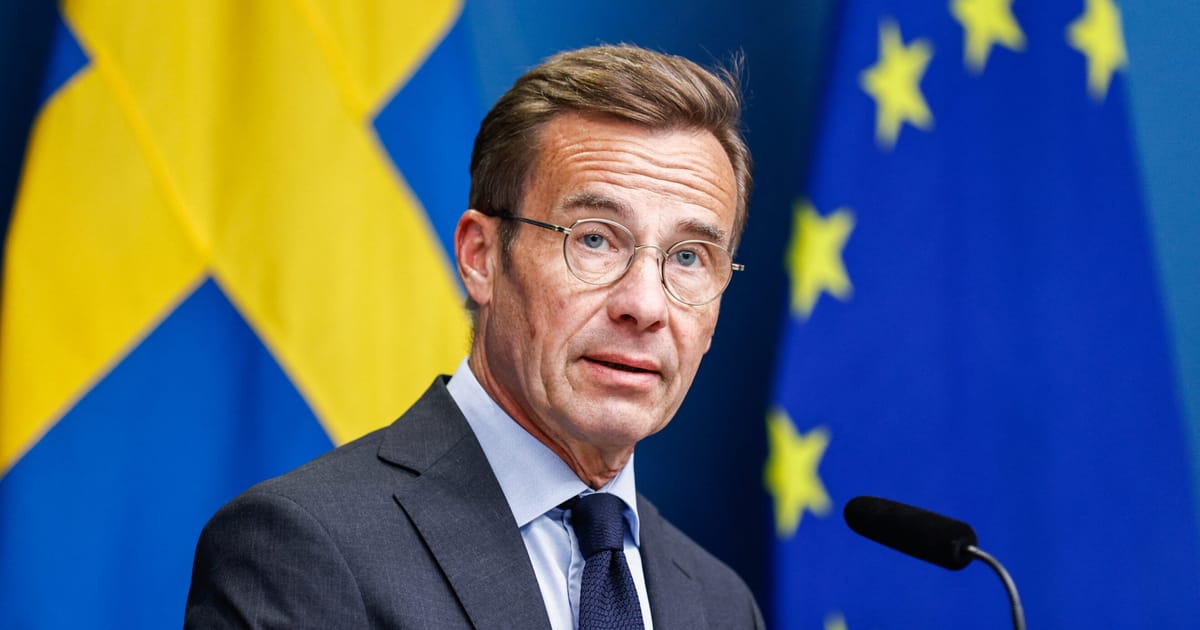

In a world where international relations and economic policies are in constant flux, recent developments in Sweden, Canada, and China provide compelling narratives about how nations and industries are adapting to shifting landscapes. As we delve into these stories, we see how each situation reveals broader trends and challenges that demand careful reflection and thoughtful responses.
In Sweden, the humanitarian situation in Gaza has prompted a significant political move. Prime Minister Ulf Kristersson has called on the European Union to consider suspending its trade ties with Israel, citing the conditions in Gaza as “utterly deplorable.” This call to action underscores a growing international focus on humanitarian concerns and the ethical considerations that often accompany international trade agreements. While the EU has not taken immediate action, this appeal underscores the critical role international bodies play in balancing economic interests with human rights issues.
The situation in Canada offers another complex scenario where the intersection of politics and economy is on full display. As the deadline of August 1 looms, Canada is scrambling to secure a trade deal with the United States to prevent the imposition of heavy tariffs. The current negotiations, described as being with a “chaos machine,” reflect the frenetic pace and unpredictable nature of the current administration’s trade policies. Over recent months, tensions have escalated, leaving Canada in a position where it must navigate these turbulent waters to preserve a historically strong alliance and sustain free-flowing trade relations.
This changing dynamic emphasizes the reality that trade relations are often susceptible to the broader political climate. Canadian observers and stakeholders continue to watch these negotiations closely, recognizing that the outcome could significantly impact the economic landscape, not just for Canada, but for North American trade as a whole. The situation is a reminder of the intricate dance that is international diplomacy, where timing, negotiation, and strategy take center stage.
Turning our attention to Asia, the Chinese luxury market is experiencing a transformation that has caught notable brands off guard. Premier fashion houses such as Chanel, Dior, Gucci, and Hermès face challenges as the market undergoes significant shifts. These changes stem from a combination of weakened consumption patterns and a dramatic evolution in consumer behavior. What stands out in this scenario is the emergence of a new generation of clients who are more unpredictable and diverse in their preferences and purchasing habits.
These brands are now tasked with understanding and adapting to this evolving market environment. The luxury industry’s experience in China highlights a broader global trend where adaptability and cultural sensitivity are increasingly vital for businesses looking to succeed in diverse and dynamically changing markets. The challenge for luxury brands lies in balancing their traditional brand ethos with innovative strategies to appeal to contemporary consumer bases.
In summary, these stories from Sweden, Canada, and China illustrate the various ways in which global trade and politics are inextricably linked, each influencing and reshaping the other. As we consider these developments, it becomes evident that a calm and reflective approach is essential. In navigating these challenges, stakeholders must remain focused on fostering dialogue, understanding the multifaceted dynamics at play, and crafting solutions that are both pragmatic and principled.
The ability to remain agile and responsive to change, while maintaining a commitment to ethical standards and mutual respect, is key to building resilient and sustainable relationships in this interconnected world. As the global community continues to evolve, these lessons will serve as valuable guides in steering a course through the complexities of international relations and economic change.
Source: {link}
